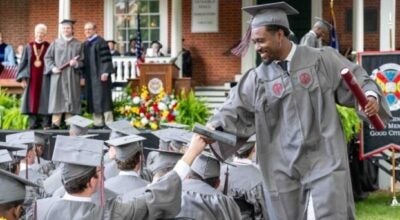Edward Strickler: ‘The mystery of the forlorn photos’
Published 12:00 pm Wednesday, February 14, 2024
|
Getting your Trinity Audio player ready...
|
In my earlier column, you might remember I mentioned trash that my husband and I found around the area. Let’s talk some more about litter.
We won’t call drinking alcohol, big sugary drinks, nicotine use, or lots of failed lottery bets vices but it is curious that these are frequently found in local litter. Are they littered merely from convenience? Or to conceal a habit? Deceiving whom? Not us: we found it!
And we soon learned the favorite beers on different streets. Bud Light was very popular on some streets. We detected a turn toward more Coors Light during the period of media fascination with Dylan Mulvaney’s association with Bud Light. Someone on residential streets near Longwood drink and litter plenty of those Sutter Home 187ml wine 4-packs, bottles and carriers. Sometimes they are littered on both sides of the street. What is this, litter tattling? Is a neighbor in trouble with drinking? Are they drinking on the way to work and on the way home? Are they drinking to manage stress at work? Or trouble at home?
Small bottles of Fireball Cinnamon whiskey are also common. Apparently people haven’t read, or do not heed, the ‘Government Warning’ on alcoholic beverage packaging about impaired driving, and harm to infants, unborn and born. We are also morally bound to remind readers that nicotine is addictive. It was especially concerning — and contradictory — to find refuse from drinking entire cases of beer in the woods adjacent to hospital employee parking. Not to mention the hundreds of cigarette butts on hospital grounds near access to the Sarah Terry Trail marked with a large sign saying ‘no smoking’; that is also beside a lovely small garden with a sign memorializing ‘little ones’ who have died.
FORLORN PHOTOS
‘The mystery of the forlorn photos’ is about fetal growth. We found a series of images from an ultrasound during pregnancy. Head, tiny hands and feet, with fingers and toes forming or folded in, are plain to see. The images were made in the year 2023. We found them months after they were taken in the parking area near where folks park to use the public library’s wifi.
And found some more in the area below the parking lot, where folks can sit privately, with a view to a lake. Were the images contemplated there with such joy, or such a hurry, that they were left by mistake? It’s a mystery to ponder and pray about.
I ponder and pray a lot about poor health outcomes in rural Virginia. Southside counties are a region where our neighbors get sick more, stay sick and with disabilities longer, and die sooner than the ‘average’ for Virginia residents. Only our rural ‘cousins’ in Southwest Virginia and on the Eastern Shore have similarly poor health outcomes. For decades I have urged both Democratic and Republican legislators (in our Congressional District and in our Virginia House and Senate Districts) to wake up to the lost lives, lost years of life, lost quality of life across rural Virginia, highlighting our Southside communities.
I usually don’t get a reply but one former Republican legislator said, more or less, ‘rural people should know, and expect that’. Does that sound like a hard heart? Or realism? Democratic legislators in the Virginia House and Senate has also typically not responded. They don’t represent many rural Virginians; perhaps they don’t care?
In 2021, I leveraged a connection to a Governor’s Commission, sending data, and encouraging commitment, begging them to take ruralv Southside’s health, economic, and other disparities seriously: an acquaintance on that Commission wrote an excellent piece recommending a ‘Secretary of Rural Virginia’. And, a bill has been offered in the 2024 General Assembly to study that idea.
More good news: the new Speaker of the House of Delegates appointed a special ‘Select Committee’ of House members – Republican and Democratic – to recommend ways to improve health care access across rural Virginia. They should report out in the fall.
EDWARD STRICKLER (and husband James Schneider) retired to Farmville in 2020 but had visited Farmville many times over the years to enjoy local state parks. Edward is retired from the University of Virginia School of Medicine and is one of the most reliable advocates for rural health in the American Public Health Association. He volunteers locally with the Piedmont Health District and nationally with Braver Angels.




